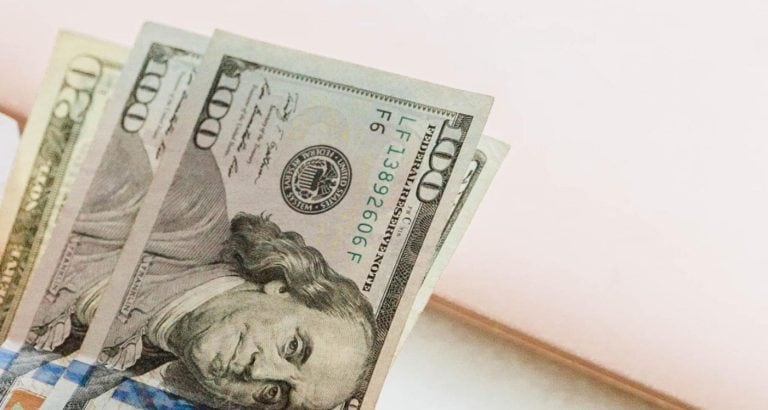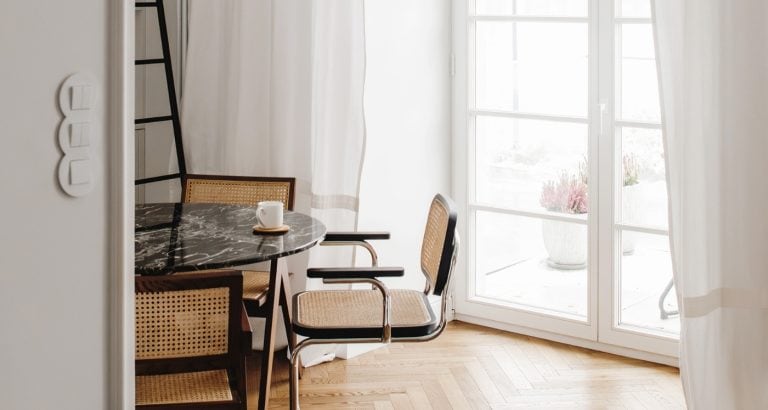How To Save For a Home While Renting [7 Simple Steps]
![How To Save For a Home While Renting [7 Simple Steps] 1 young renter learning How To Save For a Home While Renting](https://herpaperroute.com/wp-content/uploads/2022/06/How-To-Save-For-a-Home-While-Renting.jpeg)
Do you have big dreams of buying a home of your own? Maybe you want to buy a house, but right now, you’re renting and are unsure how to start from where you are and get to where you want to be.
Finding out how to save for a house while renting is simple enough; just follow these steps!
As an affiliate partner of various brands and sponsored content, HerPaperRoute may earn commission on qualifying purchases. Disclaimer
What Is the Fastest Way to Save for a House? (7 Simple Tips)
When you’re saving for a house, it’s essential to be prepared. A home is a big dream but can easily be accomplished with proper planning. Here are some tips to get started.
1. Set a Goal
To begin, you want to set a goal. Your goal should be how much you need to buy the house.
This doesn’t have to be the total price of the home, although it can be. More likely, your goal will be to save up a down payment and an emergency fund or home fund.
If you want a fun way to track your house savings, check out these savings trackers.
In order to get a mortgage, lenders typically suggest a down payment between 10-20% of the home’s total price. However, this can vary depending on your own situation.
And an emergency fund can be whatever amount you choose, but you should be able to cover your mortgage for a few months or a house maintenance emergency. The rule of thumb is 3-6 months’ worth of your expenses.
A home fund will vary based on what you need. Save up whatever extra costs you’ll have associated with your move, including any repairs, moving costs, furniture and appliance cost, etc.
Once you’ve determined your overall number, set it as your money goal for the house.
2. Find An Accountability Partner
Since saving for and buying a home is a considerable expense, you should definitely not go it alone. Instead, be sure to find someone who can hold you accountable for your money goals and share in your excitement over buying a house.
Pick a friend who will be a great cheerleader and someone you trust to tell you the truth.
3. Cancel Unnecessary Subscriptions
The more money you have when you are saving up, the better. So you should definitely cut back on things like subscriptions.
This is especially true if you pay money each month and don’t even regularly use the subscription. And even if you do, know that you can quickly stop your subscription services to save money now and then pick them back up again later.
4. Cut Out All Extras
Anything that you’re paying for that isn’t absolutely essential will slow down your progress towards your house. So see what you can afford to do without.
Restaurants and fast food? Using your car so frequently?
Anything that can go should. Make it your goal to save $100 extra towards your house each month, then $200, and so on.
5. Find a Roommate
If you want to afford a home faster, get a roommate. Splitting your rent with someone gives your roommate a place to live and you a payment you can afford.
6. Stay Home
Rather than going out and spending money, stay in instead. While it may seem tedious, making this sacrifice now will allow you to save your down payment.
7. Get a Side Hustle
Saving up money fast is way more manageable when you’re making more money. Get a temporary side hustle to pay for your house.
Mow lawns, walk dogs, bake and sell desserts, become a freelance writer, or use whatever strengths you have to make a little extra cash.
Usually, the best way to earn the most money quickly is to use the skills you currently have to create a second income. This may mean freelancing your skills on Fiverr or taking on overtime at your current work.
How Do You Save for a Down Payment When Paying Rent? (7 Ways)
This is challenging because you need to save money, but you also have a considerable expense every month that might be similar to what you’d pay with a mortgage. Here’s how you can save for a down payment while also paying rent where you currently live.
Manage Your Debt.
Before trying to save for a home, manage your debt. Pay off any debt you do have because otherwise, the payments can get in the way of saving.
Once that’s done, begin saving money for a down payment.
Monitor Your Credit and Work On Improving If Needed.
Since you’ll want a good credit score to buy a home, it’s good to start monitoring your credit now. If it needs work, that’s okay; you have time.
As you save for your home, work up to the score you want to have, and then apply for home loans.
Related: Which Debt to Pay Off First to Improve Your Credit Score?
Start a Savings Account Dedicated to Your Down Payment Savings.
It’s essential to keep your down payment savings separate from your regular savings and other money. Put the money for your house in a savings account that’s only for that purchase.
It will be encouraging to watch the money grow. It can also help you not accidentally spend any of it on non-house expenses.
Find a Cheaper Apartment.
If possible, find somewhere less expensive to live short term while you save. This will work out well if you’re nearing the end of your lease or are on a month-to-month lease.
Before moving, consider how much more money you would save and how much longer you’ll be renting. If you think you can save quite a bit more each month and the move won’t be too much of a hassle, it’s probably a good idea and can help you reach your goal faster.
Save All Windfalls Like Your Tax Return.
If you get any money that isn’t part of your regular earnings, save it for your new home. Your tax return, birthday and holiday money, bonuses from work, etc.
These can all help you quickly save the amount you need, and remember that the sacrifices of not spending will pay off.
Sell Unnecessary Items.
Anything that isn’t essential can be sold and the money added to your house fund. The furniture you rarely use, clothes in good condition that you don’t wear, games, books, jewelry, extra cars, etc.
If you still have a ways to go, remember not to sell anything that will make daily living difficult, like your kitchen table. Still, anything that is unnecessary is free game.
Pause Your Retirement Savings.
This should only be a temporary step if you are saving for a house very aggressively and it does have some drawbacks. You can pause your retirement savings and instead use that money for a down payment for your home.
If you opt for this method, only do this for a short time to help you get ahead. There are many factors to consider before doing this including whether you get a company match in your 401k, how long it’ll take to save for the downpayment, and more.
If anything, I’d choose this option last and avoid it if possible because you only have a certain amount you can put into retirement accounts each year so you don’t want to miss out.
How Much Should You Save When Renting?
There is definitely not one answer for everyone with this. But obviously, as much as you can.
Here are some practical ways to figure out how much you should save.
Establish a Budget
Make a budget that allows you to save money every month. Do this immediately so you’ll have a plan for your finances.
Make sure you pay expenses first and then keep everything you possibly can for the house. If you want to be very extreme with saving, your budget can pretty much be expenses and house savings, and that’s it.
If you don’t mind taking a bit more time, you can also complete other savings goals or leave room for fun money.
Set a Goal Based On What Your Budget Allows
Saving for a house is a fairly long-term goal in most cases unless you can devote every penny to your plan. And for most of us, saving happens on the side, after you pay for bills and expenses.
So setting a goal is vital to keep you focused through the process.
First, determine a price range when you decide to buy a house. How much can you afford?
Once you define the amount you’re willing to spend, you’ll be able to determine the down payment amount, plus set aside money that you need for furniture and other home expenses. Add all this together, and you’ll have your goal.
But remember again that you can take time to achieve it. If your goal is to save $25,000, you can easily split this up over three years, saving about $700 a month.
Related: How to Save $10,000 in a Year
Or over four years, saving around $520 a month. Change up the time variables until you find something that works for your budget.
The More You Can Save, the Faster You Can Reach Your Goal
It’s obvious, but may be challenging. You can buy a house sooner if you save more, even while renting.
You may need to change up your budget to allow more money for your goal. Or maybe even take on a second job or a side hustle, devoting the extra to your savings.
You can buy a home faster if you save more. If you have a goal that will take five years to complete, but you’d like to do it in half the time, be willing to work harder and add more to your savings.
Even if it’s difficult, the more you hustle now, the sooner you can meet your goal, buy a home, and then potentially be more relaxed about money and saving.
A Good Rule of Thumb Is the 50/30/20 Budget
Are you looking for a simple budgeting method that will help you with how to save for a house while renting? The 50/30/20 budget is your friend. Here’s how it works.
50% On Expenses
Spend half of your income on your bills and expenses. This includes rent, utilities, groceries, gas for your car, phone bills, insurance, etc.
30% On Spending
Spending is fun stuff that you like to buy but isn’t necessary. TV subscriptions, eating out, travel, and other things that cost money but aren’t necessary for survival fall into this category. With this budget, 30% of your income is dedicated to this.
20% On Saving
The last 20% of your income is dedicated to savings. When you’re saving for a house, most of your savings will be for the down payment and home expenses.
This is also assuming you already have a bit of savings for emergencies. So each month, you’ll save 20% of your income towards your home-buying goals.
Related: 50/30/30 Budget Example
Can Renting Help You Save Money?
Renting a place to live can potentially save you money, which is great if you’re saving up to buy a home! Here’s how you can save as a renter.
Cheaper Utilities
You may pay less with utilities when renting as opposed to buying. This can save you cash and help you get to your goals faster.
No Maintenance
When you rent, you usually don’t have to handle the maintenance of your house or apartment if something goes wrong.
When you own a house, you’ll need to pay for all of this yourself, but with a rental, it’s typically the responsibility of the landlord to pay for any problems with the property, unless you made another agreement.
Live Somewhere Cheap While You Save
As you work towards your home savings goals, you must plan your rent prices accordingly. Meaning, live somewhere cheap so that you have the opportunity to save more money.
The cheaper the rent you pay now, the more money goes towards a down payment on your new home. Consider this when renting and do what you can to further reduce costs, including living somewhere with less square footage, or even consider taking on roommates to help with expenses.
Saving Money For a House While Renting Is Possible.
Saving money while you have other expenses will always present a unique challenge. After all, not every penny you make can go towards your financial goals.
But it can be done! You can save money for a house, even while renting and paying your other bills.
The key is to stay focused by setting a money goal and then following a budget that works well for your life. In addition, having patience is extremely important.
Remember that saving up a large amount of money can take some time, and there’s no reason to rush it. Enjoy the process and learn all you can about real estate as you save.
Just build up your savings as you can, and soon you’ll find that you have enough for that down payment.
Related Articles:
- Is Renting a Waste of Money?
- Ultimate Guide on Saving Money for a House
- 7 Glaring Signs You Bought the Wrong House
- Condo vs Apartment: Which Makes Better Financial Sense?
![How To Save For a Home While Renting [7 Simple Steps] 4 woman holding up a handful of bills showing how to save for a home while renting](https://herpaperroute.com/wp-content/uploads/2022/06/7-steps-to-save-for-a-home-while-renting.jpg)
Follow along on Instagram!


![How To Save For a Home While Renting [7 Simple Steps] 2 woman holding up a handful of bills showing how to save for a home while renting](https://herpaperroute.com/wp-content/uploads/2022/06/7-steps-to-save-for-a-home-while-renting-180x180.jpg)
![How To Save For a Home While Renting [7 Simple Steps] 3 masterclass become a content creator](https://herpaperroute.com/wp-content/uploads/2024/09/become-a-content-creator-free-class.jpg)
![How To Save For a Home While Renting [7 Simple Steps] 5 entrepreneur planner profit business planner notion](https://herpaperroute.com/wp-content/uploads/2024/02/profit-business-planner_lg-copy.jpg)


![52 Week Money Challenge [With Printable] 8 Cash beside a notebook trying the 52 Week Money Challenge](https://herpaperroute.com/wp-content/uploads/2022/09/52-Week-Money-Challenge-expplained-768x410.png)


